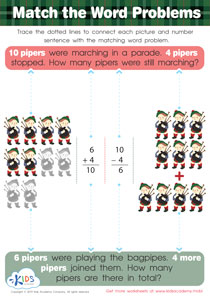Number Recognition Normal Addition Worksheets for Ages 5-6
13 filtered results
-
From - To
Explore our engaging Number Recognition Normal Addition Worksheets designed specifically for children ages 5-6! These colorful and interactive worksheets foster essential math skills, making learning fun and effective. Children will practice recognizing numbers and expanding their addition abilities through hands-on activities tailored to their developmental level. Ideal for home or classroom use, these worksheets help reinforce foundational math concepts while encouraging a love for learning. With a variety of exercises that captivate young minds, our resources ensure every child enhances their confidence in mathematics. Perfect for early grade educators and parents—help your child build a solid number recognition and addition foundation today!
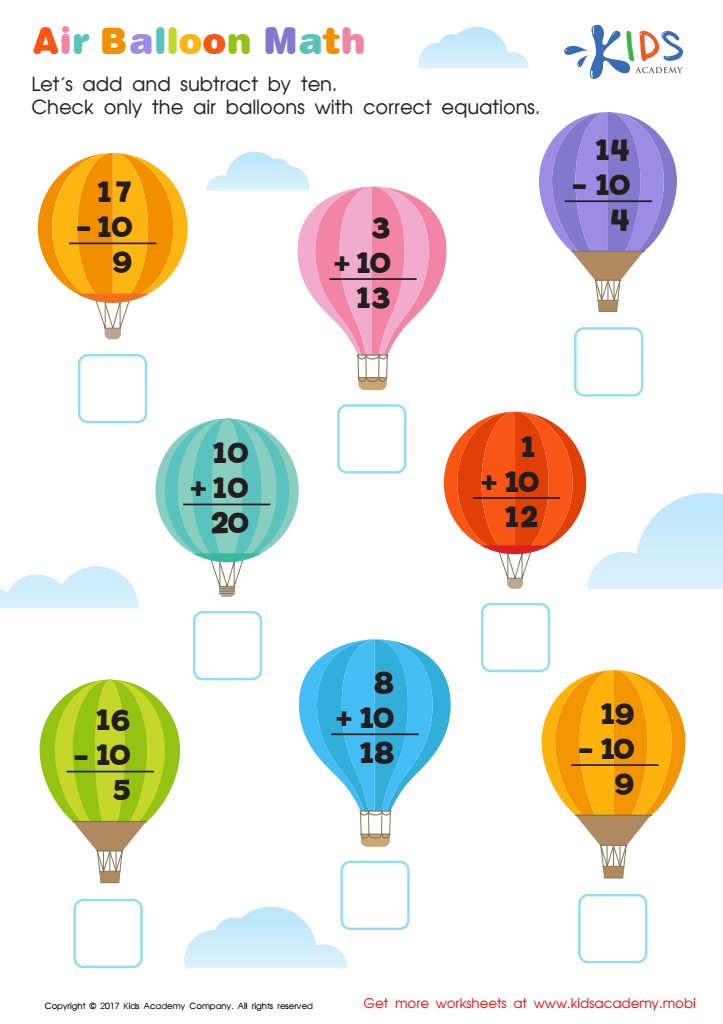

Air Balloon Math Worksheet
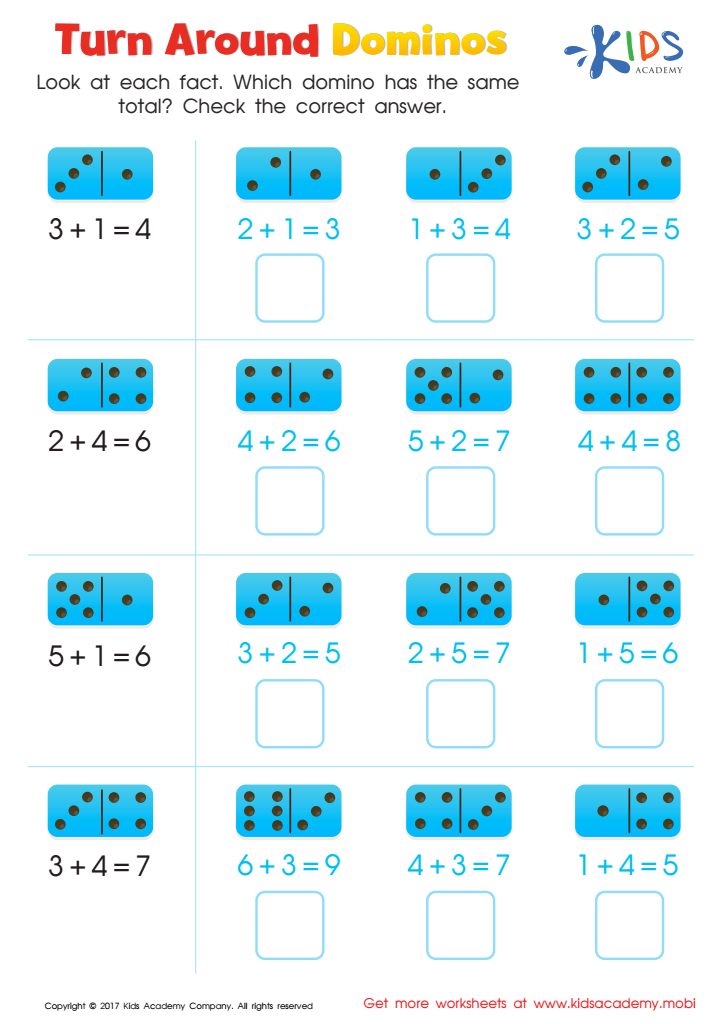

Turn Around Dominos Worksheet
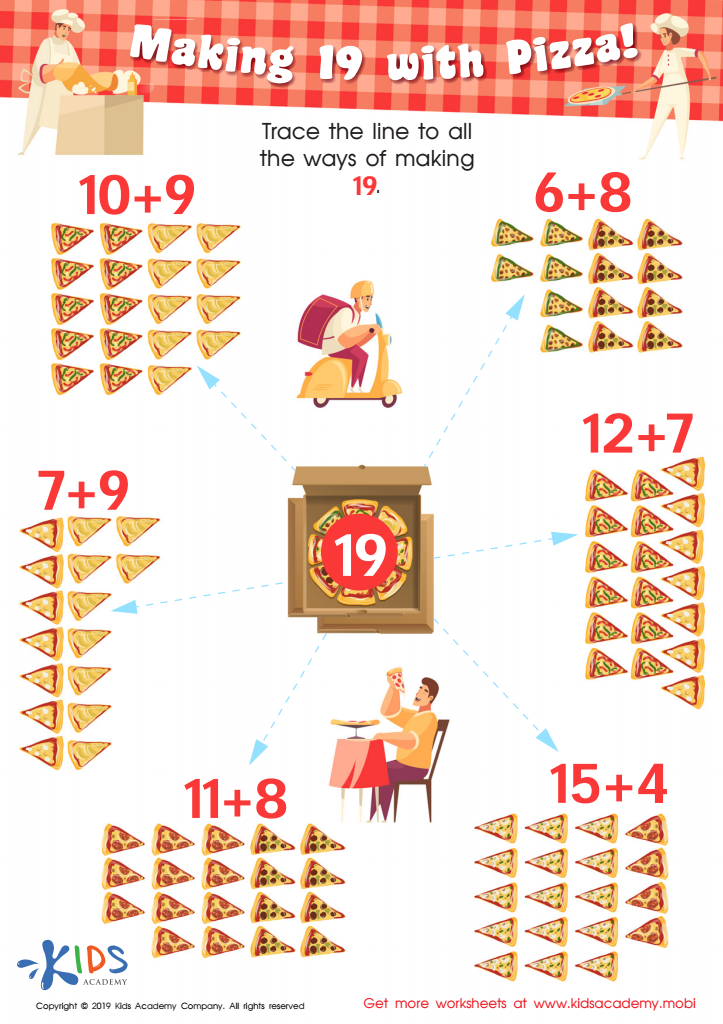

Making 19 with Pizza! Worksheet
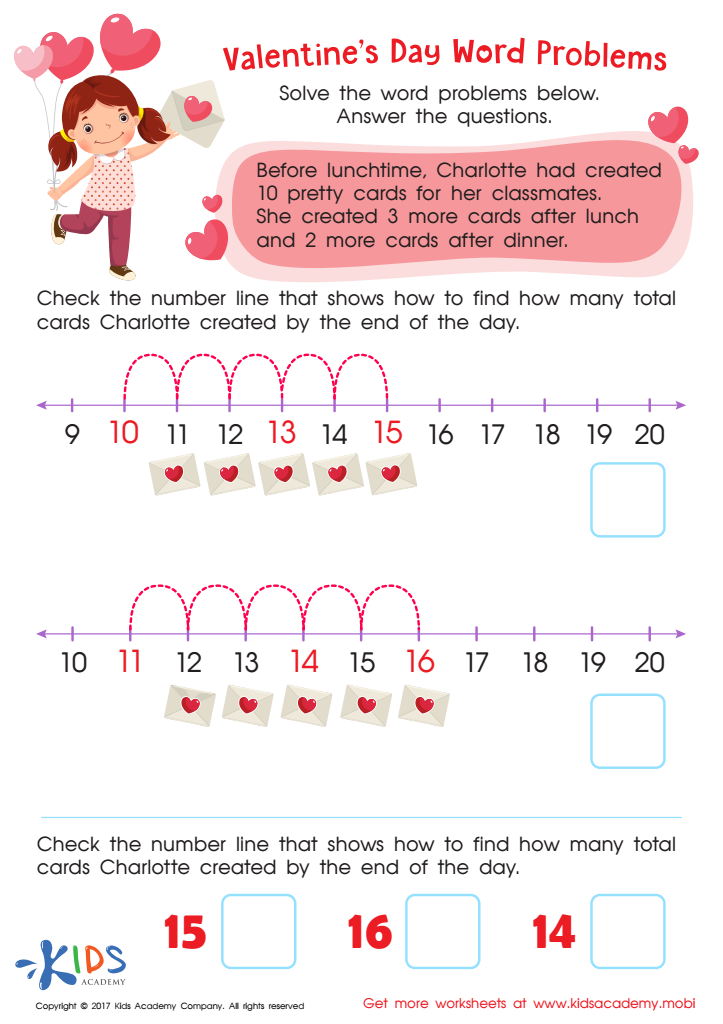

Valentines Day Word Problem Worksheet
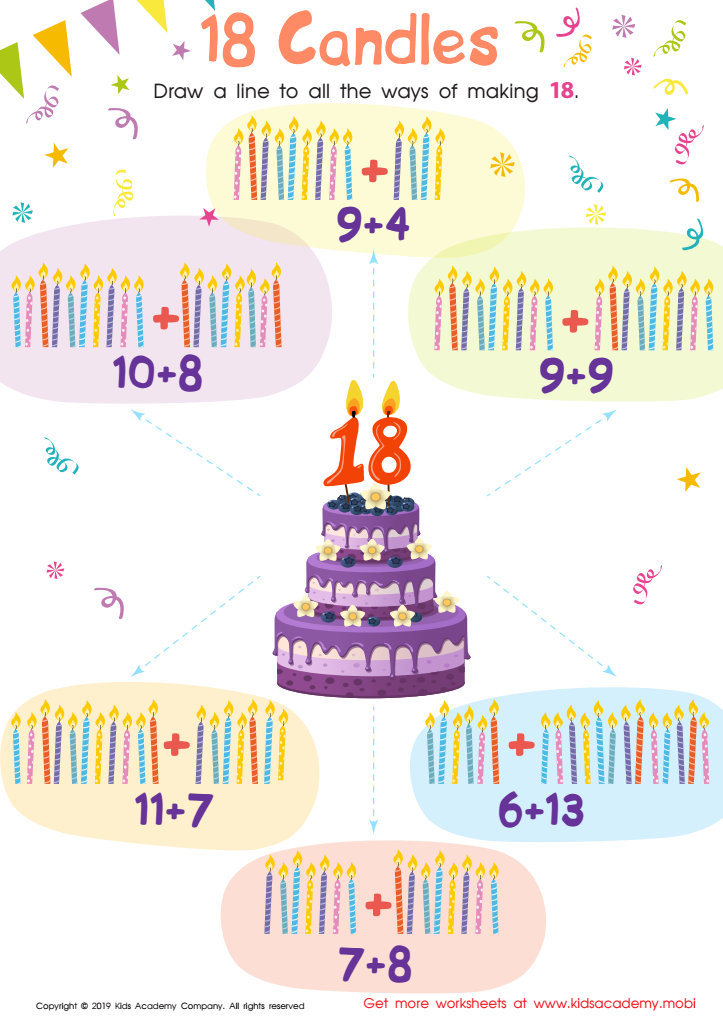

18 Candles Worksheet
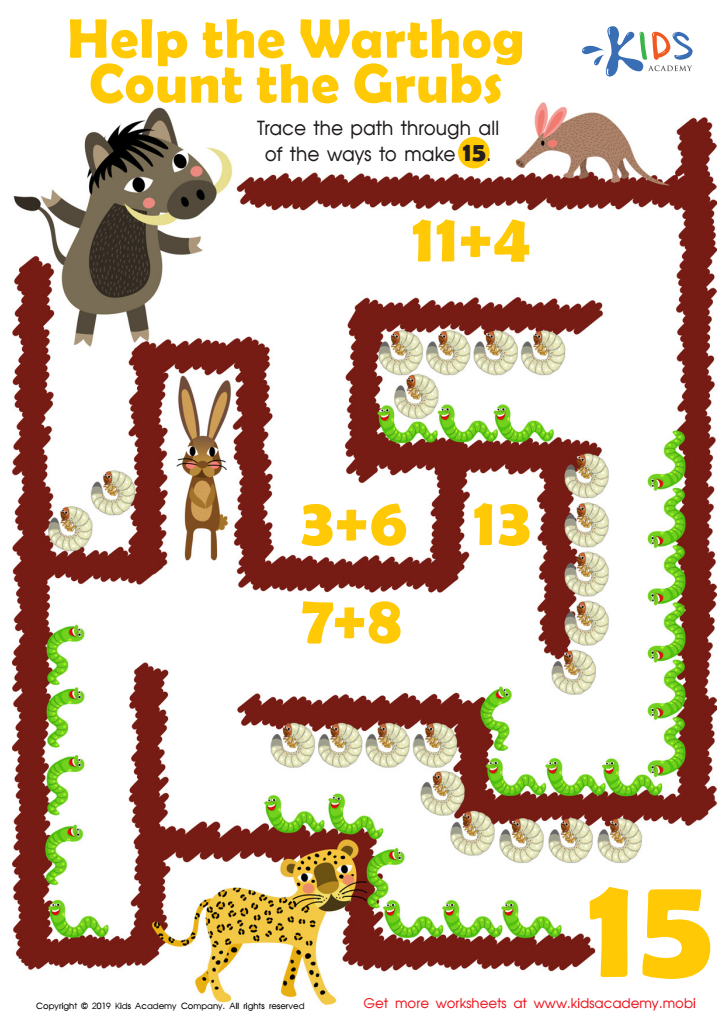

Help the Warthog Count the Grubs Worksheet
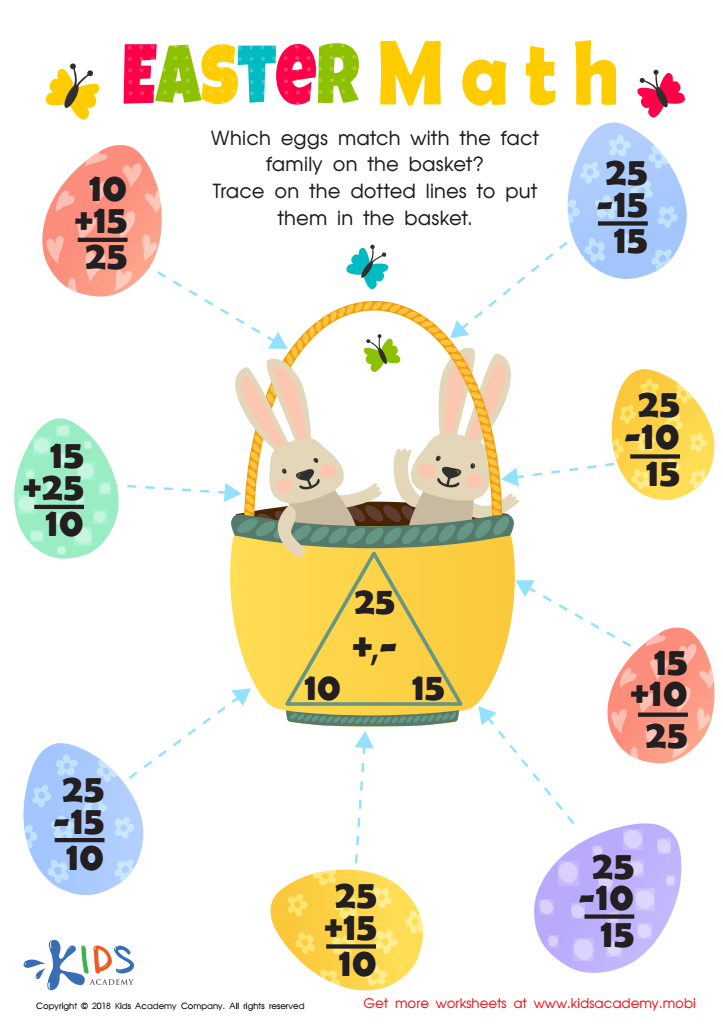

Fact Families: Easter Math Worksheet
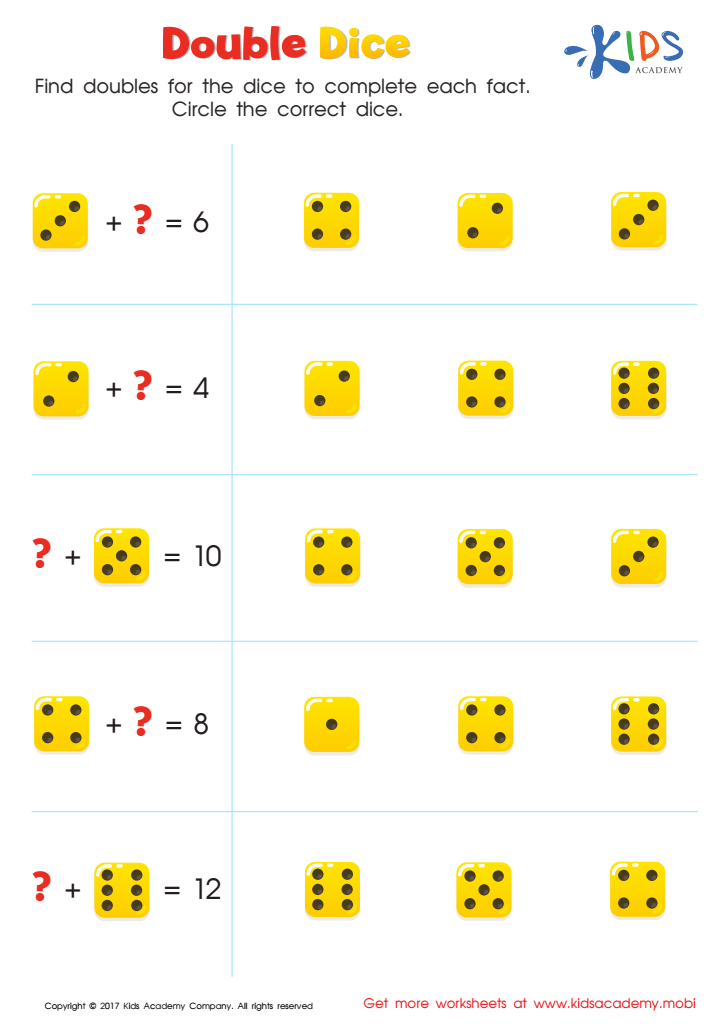

Addition Facts: Double Dice Worksheet
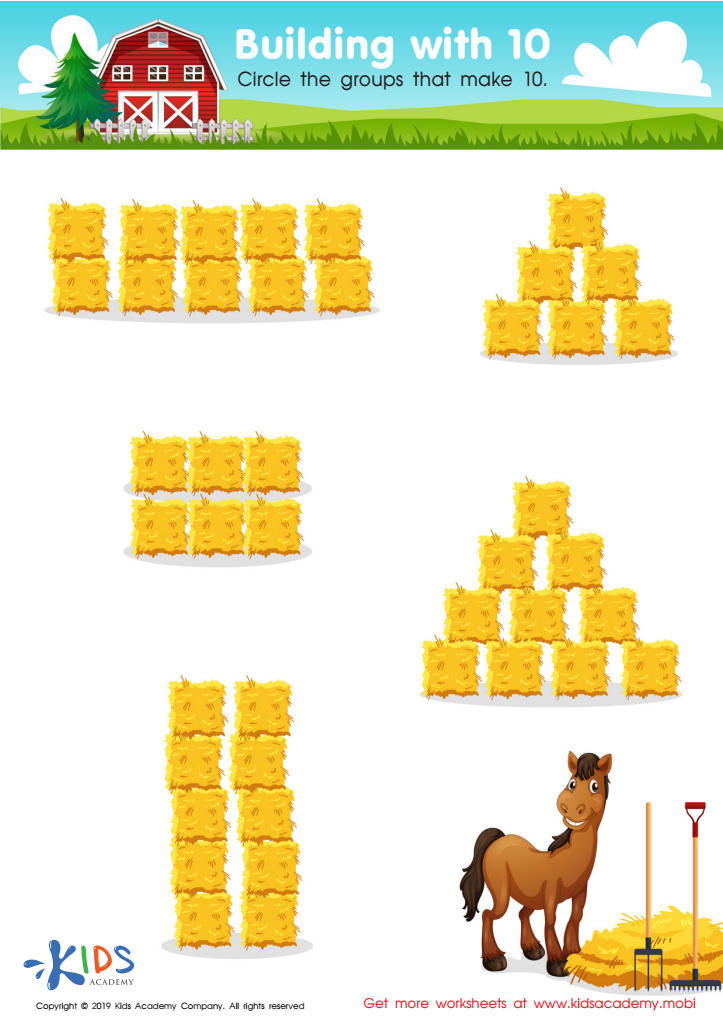

Building with 10 Worksheet
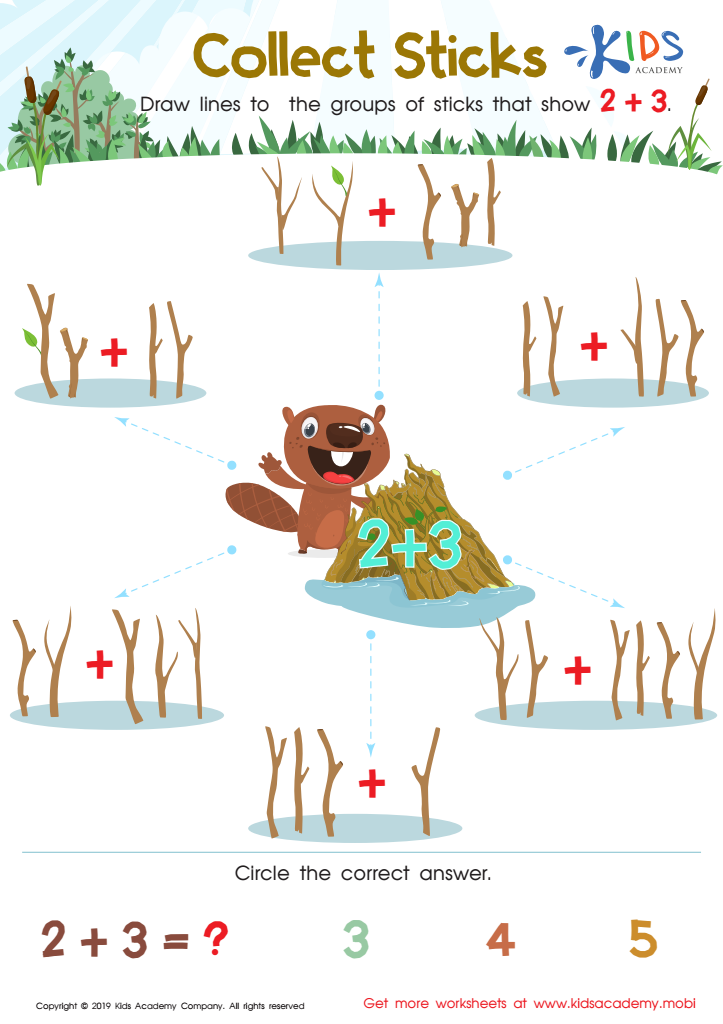

Collect Sticks Worksheet
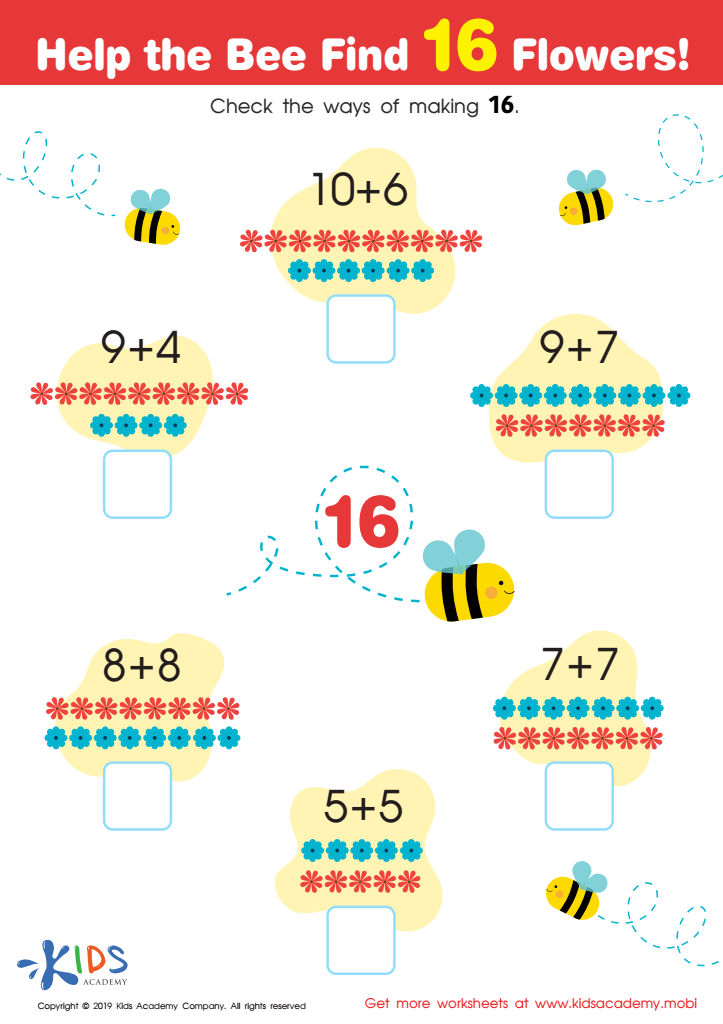

Help the Bee Find 16 Flowers Worksheet
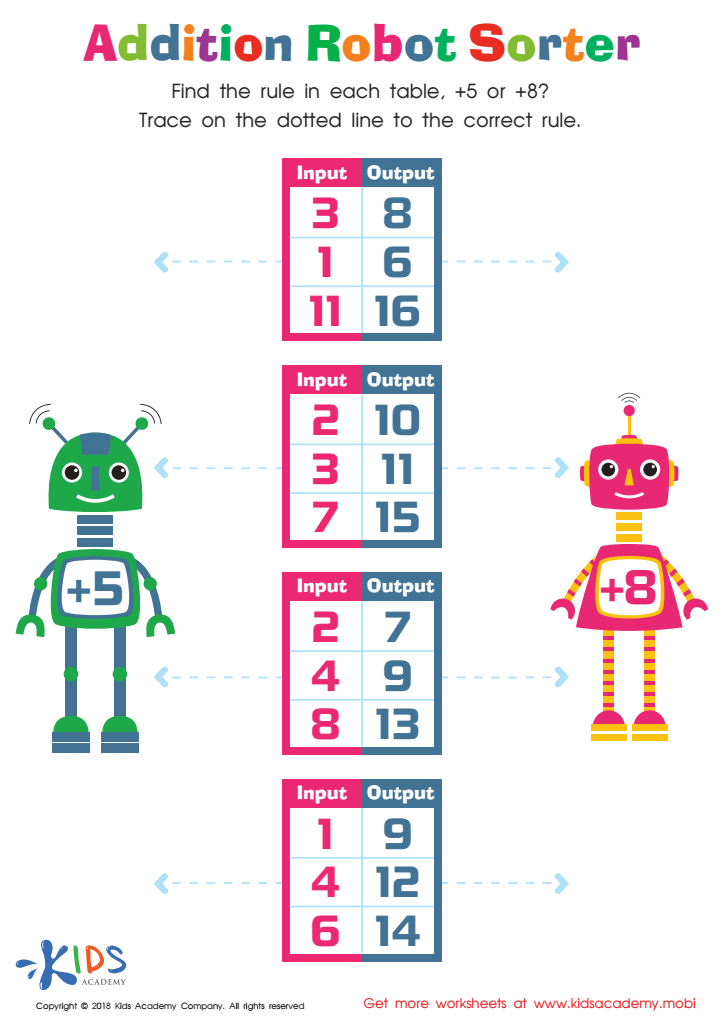

Addition Robot Sorter Worksheet
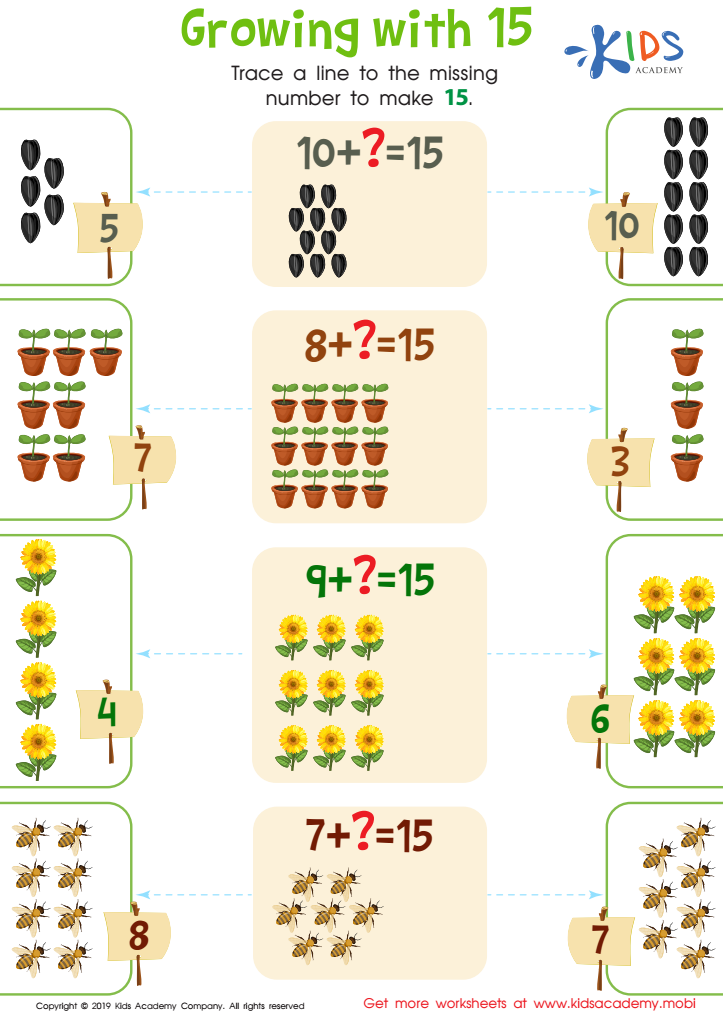

Growing with 15 Worksheet
Number recognition and basic addition skills are foundational aspects of early mathematics education for children aged 5-6. Caring about these skills is crucial for several reasons.
Firstly, number recognition helps young learners identify and understand the significance of numbers in the world around them, paving the way for future mathematical understanding. Children who can recognize numbers are better equipped to engage with basic math concepts, such as counting, which is essential for not only mathematics but also everyday activities like reading time and managing money.
Secondly, mastering normal addition at this stage promotes critical thinking and problem-solving skills. By encouraging children to combine numbers, parents and teachers foster logical reasoning, enabling children to tackle more complex math concepts as they progress in their education.
Additionally, early mastery of both number recognition and addition can significantly boost a child's confidence in math. This confidence can lead to greater participation in classroom activities, improved academic performance, and a positive attitude toward learning.
Overall, prioritizing these skills creates a strong mathematical foundation, helping children succeed academically while also enhancing their everyday life experiences. Consequently, both parents and teachers play vital roles in ensuring children develop these crucial abilities.
 Assign to My Students
Assign to My Students




.jpg)




